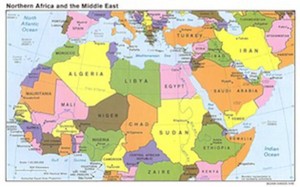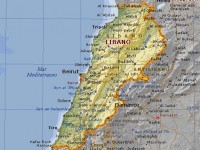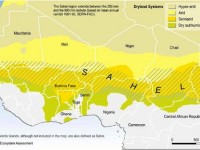
(di Anthony Brown) – The recent events have highlighted that the Salafis are grasping at relevance and trying to conquer the international political scene through the lens of the media that, we must admit, have been rather absent after the wide coverage of the Arab spring.
The tragic assault on the U.S. consulate in Benghazi was the latest in a series of attacks by the country’s increasingly active Salafis that brought back the main networks to North Africa. Al Qaeda’s flag flew prominently at several demonstrations; protesters even raised it over the U.S. embassy in Cairo in place of the American one.
Very small group of extremists, hard-liners, ultra-conservatives of different ilks who are sensitive about the role of the United States, in the case of Egypt inflamed by a film about the Prophet Mohammad, Salafis, will not likely come to power but will certainly continue to press those who do through political pressure and shows of strength in the street.
But such attacks are hardly proof of Salafism’s growing influence over the countries. The recent violence is actually a sign of the Salafis’ isolation from the mainstream. As a matter of fact common citizens are not predisposed to support this sort of violent radical Islamism that is motivating these attacks and they mobilize in protests against the Salafi attacks or on social media against the violence and there have been demonstrations and expressions of sympathy for the victims as well on social media.
These antipolitical Salafi trends are arguing against the Muslim Brotherhood’s ideology and domination of Islamist activism, and their consequent marginalization.
Indeed, most of the Salafi groups are well aware that their numbers are too small to enforce their ultra-conservative Islamist ideology, which believes in implementing principles of Islamic Sharia that should be the main source of legislation. Mainstream Islamist organizations, such as the Muslim Brotherhood in Egypt and Jordan and al Nahda in Tunisia, have strong pragmatic tendencies but the less conservative Muslim Brotherhood, which won both the parliamentary and presidential elections, cannot ignore them.
In Tunisia, the moderate Islamists in power only recently allowed the Salafis to establish a political party leaving the Salafis without representation in the new Constituent Assembly.
New participationist strategies among moderate Islamist parties are to be supported by Western political actors in order to propose models alternative to the use of jihadi violence as a tool for political negotiation to prevent violent disruption of civil society as in Algeria in the 90s.
Egypt, Tunisia and Lybia also need more assistance from more mature democracies in building representative institutions. The State primary requirment to find international economic partners and donors will not be fullfilled without strengthening political institutions.
Giovani inglesi e francesi addestrati in Siria da Al Qaeda, pronti ad attacchi kamikaze in Europa
gennaio 27, 2014





 26 Set 2012
26 Set 2012
 Inviato da Clara Salpietro
Inviato da Clara Salpietro 



















